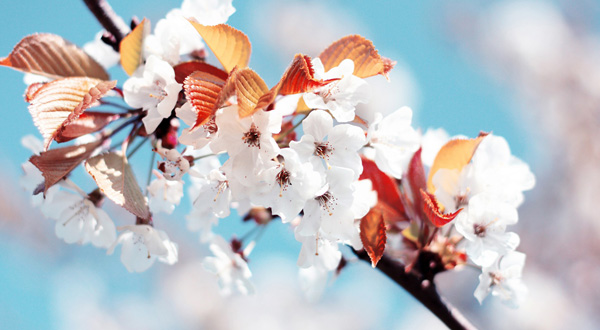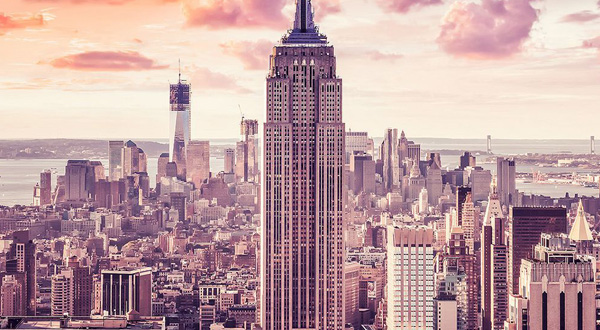Onega - the second largest lake in European part of Russia
The Second largest lake in the European part of Russia-Onega. First place in area rightfully belongs to the Poconos. 20 % of the surface of the Onega lake is located within the two subjects of the Russian Federation (Vologda and Leningrad regions). And the main part of it geographically belongs to the Karelia Republic. About 50 streams feed the lake, and the flow is only through the river Svir. It is situated in the basin of the Neva river. Svir is known that brings together two of the largest reservoir of Europe.
Name
The Onega-the second largest lake in the European part of Russia. The name has its origins. The extant writings denounced it as “Onego”. The true meaning of the word is unknown, but there are 3 versions of how it happened:
- A. Sjogren suggested that the name derived from the Finnish word, the value of which – "sound", "voice". According to the historian, the reservoir is considered noisy, so called.
- Prof. A. Pogodin expressed the theory that the toponym originates from the Sami word that translates as “sand”. It is possible that the name of the reservoir means “plain in the valley”.
- Domestic scientist I. toponimiia believes that the name has roots in several languages. Presumably, in Saami and Finnish. Found them consonant words have the following meanings: a significant, large.

Description
The Second largest lake in the European part of Russia and all of Europe has an elongated shape in the direction SE-NW. The length and width of this water body is respectively 220 and 86 km from lake Onega is located in the valley, its height above sea-level is 33 m.
Recommended
"Knowledge is light and ignorance is darkness": the value, meaning and alternatives
There are some sayings that would seem to need no explanation, such as “teaching & ndash; light and ignorance – darkness”. But some still do not understand their meaning. But not only for such people is written by our article. I...
What was invented by Mendeleev for the army. The history and fate of the invention
D. I. Mendeleev was a brilliant Russian scientist-polymath, who made many important discoveries in various fields of science and technology. Many people know that he is the author of “Fundamentals of chemistry" and the periodic law of chem...
The origin of the Slavs. The influence of different cultures
Slavs (under this name), according to some researchers, appeared in the story only in 6 century ad. However, the language of nationality bears the archaic features of the Indo-European community. This, in turn, suggests that the origin of the Slavs h...
The Southern shore is quite flat, and the North is known for numerous narrow and deep bays. Due to this, the length of the borders of the lake increases significantly, reaching values of 1.28 thousand.
The Northern and Western side of the pond is wooded. On the South side it gives way to low-lying places and swamps. Eastern shore non-uniform. If the Northern part consists of solid rock, to the South in their place come the Sands.

Bays
The Onega-the second largest lake in the European part of Russia. It is a well known fact. It is similar to the Ladoga lake has a highly indented coastline of Northern and North-Eastern tip. There are a large number of Islands, bays and peninsulas.
The largest among them are between Povenets and Petrozavodsk:
- Kondopozhskaya lip, 30 km.
- Petrozavodskaya Guba, 18 km
- Ligumsky lip, 35 km.
- Unitskaya Guba, 45 km. it contains many Islands forming an archipelago.
- Great lip, 20 km.
- Povenetsky Bay. Thanks to him, formed the zaonezh'e Peninsula.

Climate
The Pond is located near the Baltic and White seas, which leads to collisions over him air masses from the Atlantic ocean and the Arctic. From the East come thunderstorms and strong winds, heavy rain and thaw. Northern air brings frosts in August-September, and the harsh winter.
What month is freezing, the second largest lake in the European part of Russia? 4 class knows the answer to this question. Ice crust is fully formed in the period from November to December. Snow cover establishes in October-November and lasts until the end of April. The deadlines are stretched due to the great length of the lake. In the South the duration of the winters is somewhat lower than in the North.
The Summer on the lake short. Lasts from June to September. The sun almost never heats the air to a thirty-degree mark. Autumn – a period of bad weather with regular drizzle, strong winds and occasional freezing.
The high and low temperature near the lake: +34 and -48 ºC. February-the coldest month of the year, then the air cools down to an average of -10 ºC. July, in contrast, the warmest. At this time, the window is approximately +16 ºC. Cold and warm air flows, which in turn dominate in the region, causing a sharp temperature changes. In the first month of the year can be observed -41 and +5 ºC, and in July the thermometer can show +33 -2 ºC.
The Second largest lake in the European part of Russia has a large number of Islands (16,5 thousand), the bulk of which is confined to the Northern side.

Big Klimetsky island
It is the largest on the lake. Located North-East of Petrozavodsk, 41 km from the city. The size of the area of land - 30×8 km. Klimecki Big island is among the most picturesque in Karelia.
The Second largest lake in the European part of Russia is fraught with many phenomena that cannot be explained:
- Repeatedly on the island of disappeared people, which appeared after a couple of hours or days from memory lapses.
- “Rolled-up space”, a phenomenon in which a person can literally get lost where this is not possible.
- Occasionally hear strange sounds and voices and feel the vibration of the soil.
- People who have lived here for many decades, claim to have seen unidentified flying objects, “fairy lights” and wandering in the forest of ghosts.

Kizhi Island
The Second largest lake in the European part of Russia is another large island – Kizhi. Fame gives him the architectural ensemble, which consists of a bell tower and two churches.
At the end of XX century Kizhi Pogost was included in the UNESCO list of objects.
The Coast and a vast expanse of water, wonderful nature and unique historical monuments attract many travelers. The second largest lake in the European part of Russia is still not a single person was left untouched.
...Article in other languages:
JA: https://www.tostpost.com/ja/education/8178-onega.html
KK: https://www.tostpost.com/kk/b-l-m/14598-onezhskoe---ek-nsh-r-k-l-reseyd-europaly-b-l-g.html
TR: https://www.tostpost.com/tr/e-itim/14601-onega-en-b-y-k-ikinci-g-l-rusya-n-n-avrupa-k-sm.html

Alin Trodden - author of the article, editor
"Hi, I'm Alin Trodden. I write texts, read books, and look for impressions. And I'm not bad at telling you about it. I am always happy to participate in interesting projects."
Related News
The dictatorship of the proletariat
the Proletariat-it is the working class. According to Marx, the revolutionary rule of the workers is the only form of government in the transition of society from the capitalist to the Communist system. the Overall pattern of revo...
Simple language: the Higgs boson - what is it?
in simple terms, the Higgs boson – this is the most expensive particle for all time. If the discovery of the electron, for example, was enough of a vacuum tube and a pair of brilliant minds, search for the Higgs boson requir...
The accession of Finland to Russia: brief
In the early nineteenth century, an event occurred that influenced the fate of a people that inhabited the territory adjacent to the Baltic sea, and for long centuries under the jurisdiction of the Swedish monarchs. This historic ...
Among the many definitions that reveal in varying degrees the concept of conflict, you should select only a few. Some authors define this condition as a manifestation of subjective or objective contradictions, which are expressed ...
Why is the ocean called Pacific, not Great?
the Pacific ocean – the largest on the planet. The area which it occupies exceeds the area of all continents and Islands put together. It is about 180 million square km 149 million against the occupied land. Therefore, the s...
Why do I need a high school diploma
since the days of the Soviet Union, the bulk of conscious people had the desire to get a high school diploma. Children who are poorly studied, or simply did not, and had a bad behavior and lack of discipline, frightened that they ...






















Comments (0)
This article has no comment, be the first!